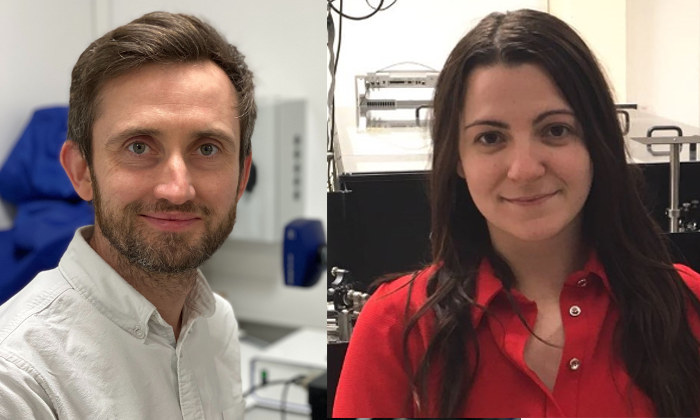Two PSI academics appointed Future Leader Fellowships
28 Apr 2020
Dr Patrick Parkinson and Dr Jessica Boland working in The Photon Science Institute have been awarded Future Leader Fellowships

The Photon Science Institute is pleased to announce that two academics from the institute, Dr Patrick Parkinson (Department of Physics and Astronomy) and Dr Jessica Boland (Department of Electrical and Electronic Engineering), have both been appointed a Future Leader Fellowship (FLF) cohort. The FLF is a £900 million fund which is aimed at helping to establish world-leading researchers and innovators in both business and academia, is run by the UK Research and Innovation (UKRI).
Dr Parkinson’s Fellowship is entitled ‘Big-data for nano-electronics’. The ultimate goal of this project is to develop a new methodology correlating multiple measurements for the demonstration and scale-up of transformative devices based on novel nanotechnology, for sensing, computing, telecommunication and quantum technology.
Dr Parkinson said, “The award of this fellowship will allow me to build a team to develop a fast way to understand the role of disorder in functional nanotechnology. I’ll work with academic and industrial partners around the world – Cambridge, Strathclyde, UCL, Lund, the Australian National University, AIXTRON and Nanoco – to apply this method to understand and optimize a range of novel devices.”
Dr Boland’s Fellowship is entitled ‘Terahertz, Topology, Technology: Realising the potential of nanoscale Dirac materials using near-field terahertz spectroscopy’. This project will combine ultrafast terahertz spectroscopy with scattering-type near-field optical microscopy to examine materials at 3 extremes: low temperatures, sub-picosecond timescales and nanometre length scales. This will provide a direct feedback loop between material characterisation and device development, enabling development of prototype THz devices for healthcare imaging systems and ultrafast wireless communication.
Dr Boland said, “I am extremely excited to start this fellowship. It will allow me to build up my own research team and work with world-leading groups at University of Leeds, Oxford and NPL to investigate novel nanomaterials (e.g. topological insulators) over a new regime and design bespoke nanoscale systems for device applications. Working alongside Teraview, the fellowship aims to develop prototype terahertz devices for healthcare imaging systems and ultrafast wireless communication.”
For further details about the research projects, visit the PSI Website.
